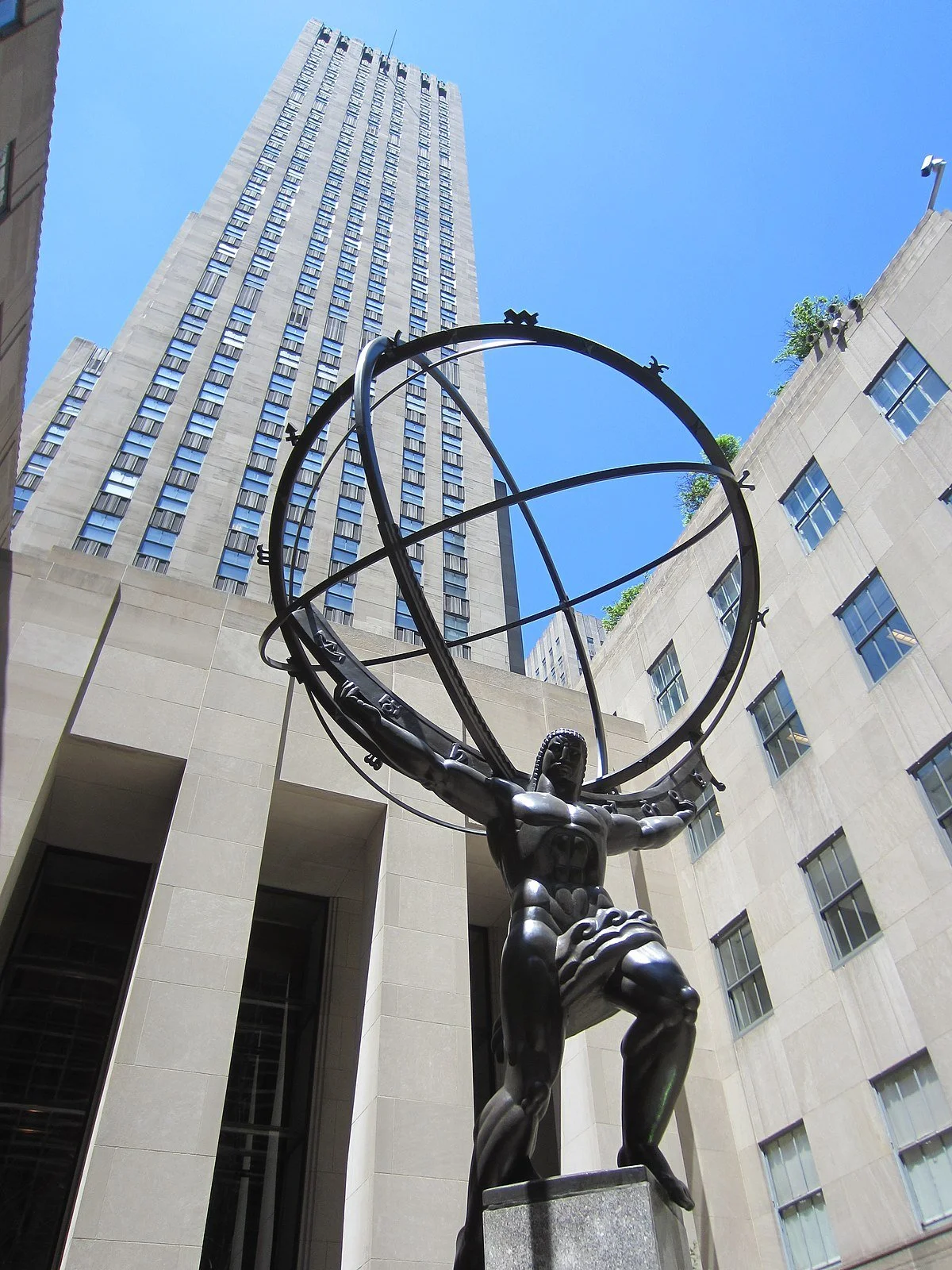The Ozempification of Everything
We choose to go to the moon. We choose to go to the moon in this decade and do the other things, not because they are easy, but because they are hard, because that goal will serve to organize and measure the best of our energies and skills, because that challenge is one that we are willing to accept, one we are unwilling to postpone, and one which we intend to win, and the others, too. —John F. Kennedy
Hard times create strong men, strong men create good times, good times create weak men, and weak men create hard times. —G. Michael Hopf
Above: The easy way is a shortcut to hardship.
If you have watched American television even for a moment over the last few years, you have most likely seen this commercial:
Riffing on Pilot’s 1975 hit Magic, the catchy jingle touts the hot new drug on the block: Ozempic.
Ozempic is the brand name for semaglutide, a drug that belongs to a class of medications called GLP-1 receptor agonists. Though originally developed to treat type 2 diabetes, semaglutide has been hailed as a "wonder drug" for weight loss.
However, much to the chagrin of both Pilot and Ozempic manufacturer Novo Nordisk, magic does not exist.
You see, reality has certain rules: every sword is double-edged; growth and comfort do not coexist; and nothing worth doing comes easy.
To me, semaglutide is an elegant solution to a radically simple problem. Even Michael Lowe, a professor of psychology at Drexel University who has studied hunger for 40 years, deemed the drugs “an artificial solution to an artificial problem.”
To lose weight, one must move more and eat less. The calculus is as simple as that.
Like most things worth doing, it requires buckets of blood, sweat, and tears that start as discipline, willpower, and courage.
Unfortunately, the easy way is all the vogue as of late. Per STAT and The Harris Poll, almost half of Americans would be willing to spend up to $100 a month for new weight loss medicines such as Wegovy, and one-third say they would indefinitely pay whatever they can afford to get the drugs.
It makes sense. Why climb the stairs when the elevator is right there?
However, this is a dangerous precedent.
When I look in the mirror and see a bit more flabbiness than fitness, I know that this derives from a lack of discipline and willpower, from my priorities being all askance (i.e. eating more bagels than broccoli and choosing my Netflix account over my NordicTrack), not some physical or genetic dysfunction.
At the risk of putting it too strongly, my taking it would be tantamount to pharmaceutically-enabled stolen valor (n.b. obviously this does not apply to an individual in dire need of the drug due to genetics, severe symptomatology, or doctor’s orders). It would be the easy way out and, worse, would only treat a symptom versus the root cause of my flab.
This option—the Easy Button—is endemic because it is irresistible and quickly coming for all aspects of work and life.
What semaglutide is doing to fat, Generative AI is doing to creativity, inspiration, and meaningful work: gobbling it up entirely.
After all, society now has an Easy Button for white collar work in the form of Generative AI.
In my mind, writing White Noise or performing client work with ChatGPT would be tantamount to algorithmically-enabled stolen valor.
If this persists, it may as well be stolen valor all the way down.
Farnam Street’s Shane Parrish does a good job elaborating on why this is so problematic:
A few weeks ago, my 13-year-old son asked me why writing was so important. He wasn’t happy. One of his teachers had asked him to write an essay and he would rather use AI to generate it for him and be done with it.
The question seemed as natural to him as using a dishwasher is to us. If there is a better, more convenient way to do this, why not use it?
Today’s kids are growing up in a world where they can generate essays in seconds. Many employees are already using AI for a lot of simple tasks like email, catching up after vacation, summarizing meetings, and drafting PowerPoints. While some of these tasks might be accomplished more efficiently by ChatGPT than by human effort, I’d argue there are times when inefficiency is the point.
The reason they teach writing to kids in school is not to generate endless essays on history or books but to create a space to practice reasoning. By delegating writing to AI, my son might be reducing his time spent doing homework. But he’s missing the chance to think more clearly about the topic at hand.
Writing forces you to slow down, focus your attention, and think deeply. In a world where attention is fragmented in seconds, thinking becomes more reactive than reasoned. Only when we have time to play with a problem can we hope to think about it substantially. Writing requires sticking with something a little longer and developing a deeper understanding.
Mortimer Adler once said, “The person who says he knows what he thinks but cannot express it usually does not know what he thinks.” We all know someone with this surface level of understanding. They read an article or two and have the confidence of an expert. It’s as if you are having a conversation with someone who tells you they are a hockey player, only to find out they’ve never skated.
The Easy Button attacks society much like cancer does a healthy body: it saps all strength, grows unchecked, gradually takes over, and requires intense, invasive treatment (if it can be cured at all).
This seems like a canary in the coal mine. As the timeless adage goes, "Hard choices, easy life. Easy choices, hard life.”
It leads to a society of pretenders, not practitioners, of LARPers, not leaders (as my friend Regina Gerbeaux so eloquently put it) and strangles at birth the resiliency, creativity, courage, and more that imbue the “the crazy ones, the misfits, the rebels, the troublemakers, the round pegs in the square holes” who move society forward.
We already see examples of this today:
Everyone wants to be a founder, no one wants to struggle to make payroll every month.
Everyone wants to be a veteran, no one wants to cradle a friend's lifeless body in a far off land.
Everyone wants to be a hero, no one wants to run into a burning building.
Everyone wants to be an author, no one wants to edit a fifty-thousand word manuscript for the umpteenth time.
Everyone wants to be an athlete, no one wants to run just-one-more windsprint.
Everyone wants to be a podcaster, no one wants to have a conversation that means something.
When appearances are everything, society lacks depth.
When society lacks depth, we “muddy the water, to make it seem deep.”
When capital-T Truth is no more than a mirage in a desert of lies, the spirit that animates society dies of thirst.
Aleksandr Solzhenitsyn said it brilliantly:
All the glorified technological achievements of Progress, including the conquest of outer space, do not redeem the 20th century's moral poverty which no one could imagine even as late as in the 19th Century…In our country, the lie has become not just a moral category, but a pillar of the state. In breaking with the lie we are performing a moral act, not a political one, not one that can be punished by criminal law, but one that would immediately have an effect on our way of life.
Falsehood is the flimsiest foundation known to man.
A society based on innumerable lies will inevitably collapse onto itself.
So “break with the lie…[and] have an effect on our way of life.”
Don't take the easy injection or drink from the algorithmic gruel.
Swallow life’s bitter pills. Your mind, body, and soul will thank you.
And, with a little bit of elbow grease and a whole lot of luck, society will too.







